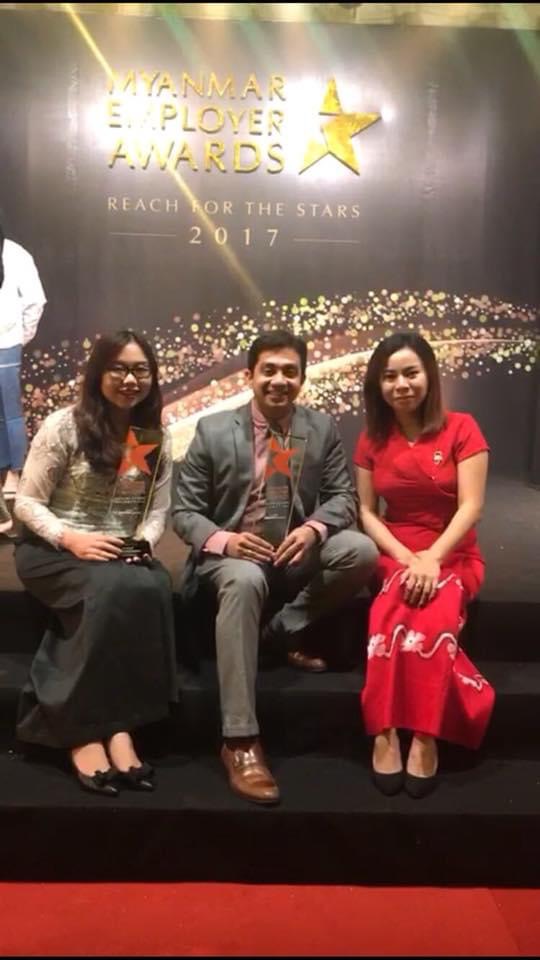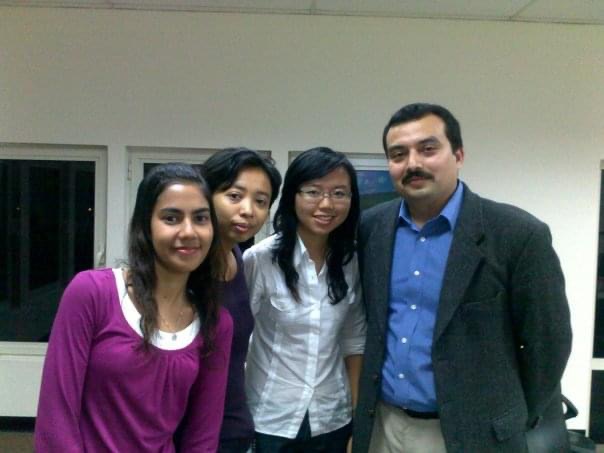How AI Influence Human Resources – SPJ Alumni Spotlight With Wint Thiri Myo Naing
“The Great Resignation is a very hot topic that has been in discussion for a while now. There are two reasons for this phenomenon; people have realised the convenience of WFH, and secondly, during the pandemic and the WFH period, there have been significant changes in emotional thought processes, ways of thinking, and things people value.”
With the onset of the latest technologies, what changes have taken place in the Human Resources sector? How can HR alter or change organisational patterns to benefit their employees? Would there be a halt to The Great Resignation phenomenon?
Let’s hear from SP Jain alumni Wint Thiri Myo Naing (GMBA 2010) who has curated some great insights to capture the technical changes HR would need to undergo for massive employee retention and development changes.

Q. Could you give us a brief introduction of yourself?
I was born and raised in Myanmar. After several years in the industry, I decided to enrol in SP Jain’s Global MBA program. Once I graduated, I worked in Singapore for a year and then moved back to Myanmar, where I began my HR career in 2011.
I have over 10 years of working experience in the HR field with INGO, Oil and Gas, Financial Consulting, and MNC companies. Currently, I am the Country HR Manager at De Heus Co Ltd.
Q. You graduated from SP Jain back in 2010. Are there any fond memories from your time at School that you still remember?
This question reminds me of my sleepless nights and struggles 😊. I had a lot of fond memories during my SP Jain time. I was struggling to party hard with friends and finish the assignments simultaneously. I really enjoyed this twin-city program in Dubai and Singapore.
I loved the whole international set-up where my cohort consisted of Indians, Myanmars, Vietnamese, Thais, Chinese and Motswana. We also had professors of diverse nationalities and great expertise. With this, I got a chance to learn about different cultures. Also, as I recall, I was the youngest one in my batch.

Q. You have worked with some of the world’s top organisations across countries. What are some of the best HR practices you have observed over the years? How have these practices changed across cultures?
When we talk about HR, the baseline of HR fundamentals that we apply across the world are more or less the same. The only difference lies in Asian countries; I’ve often noticed that when some international MNCs apply good HR practices in their European, American and Australian markets, they often fail to apply them to their branches in Asia. However, I am lucky enough that all of my international companies that I have worked with including my current one, have set-up their business here with HR good practices and adept with the Myanmar culture and law to combine the most suitable one for Myanmar. This is how I have learnt and grown in my HR career.
Q. The Great Resignation has been a huge phenomenon that we observed worldwide recently. How long do you think this trend will last? What can organisations do to arrest this trend?
The Great Resignation is a very hot topic that has been in discussion for a while now. In my opinion, there are two reasons for this phenomenon. Firstly, people have realised the convenience of WFH, and secondly, during the pandemic and the WFH period, there have been significant changes in emotional thought processes, ways of thinking, things they value, and so on.
In the former, they will continue to be an employee. If organisations offer flexible work arrangements, the resignation trend may also reduce in the near future. Remote jobs would also be more competitive. We will need to invest more in learning development programs to support flexible working arrangements and attract employees with more well-being programs.
In the latter, people will turn to entrepreneurship or self-employment, which could benefit society by potentially creating more job opportunities.

Q. In a world moving steadfast toward AI and ML, what roles will human resources play in the future of work? Could you share your expert insights?
Nowadays, Artificial Intelligent (AI) and Machine Learning (ML) play an essential role in HR. With the help of these advanced technologies, a lot of HR administrative workload can be reduced. This role is also changing daily. We become strategic business partners involved in board meeting discussions to understand long-term organisational goals. HR is all about people. Using AI and ML, HR can interact more with employees in their career development and align with strategic business decisions.

Q. How do you think HR leaders need to rethink workforce, employee planning, management, performance and experience strategies for the future?
Due to the pandemic, there have been a lot of changes in the nature of our work, employees’ expectations, employers’ preparation and more. We will need to prepare a hybrid-working style and advance our skillset using technology.
Employees expect their employers to provide more health care, well-being, and hybrid work-style arrangements. In order for us to maintain attractive working environments, employers will need to consider investing in Artificial Intelligence which will save us time and manpower for workforce planning and performance management.
We would need people who are skilful at their job so it would be easy to switch to a hybrid working environment. Employers will need to invest more in learning and development plans and employee well-being programs.
Click here to read more articles from SP Jain Alumni Community!
Related Posts
-
 In This World of Internationalisation, Will You Survive?
No Comments | Jul 27, 2011
In This World of Internationalisation, Will You Survive?
No Comments | Jul 27, 2011 -
 Breaking corporates shackles to start a wealth management boutique
No Comments | Feb 18, 2015
Breaking corporates shackles to start a wealth management boutique
No Comments | Feb 18, 2015 -
 S P Jain (Global) alumnus Chetan Sodhani shines
No Comments | Apr 2, 2015
S P Jain (Global) alumnus Chetan Sodhani shines
No Comments | Apr 2, 2015 -
 Alumnus Jaideep Sengupta’s success story
No Comments | Apr 17, 2015
Alumnus Jaideep Sengupta’s success story
No Comments | Apr 17, 2015
